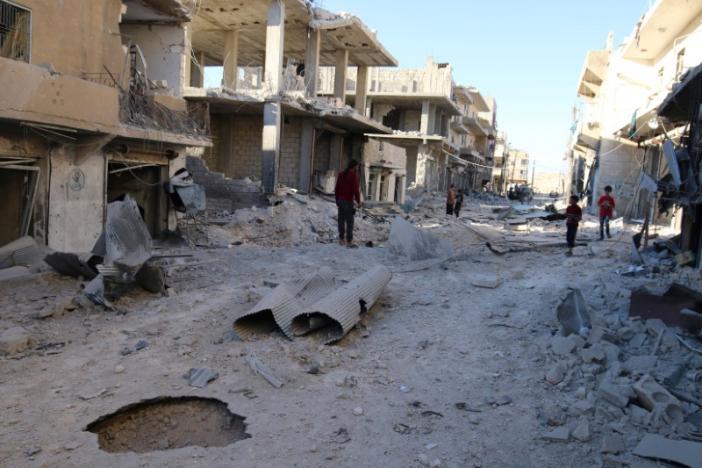Following the defeat of the Syrian forces and its impact on the regime, a number of regional and international powers warned against a peace deal in Syria that parties supporting the regime and Iran could benefit from.
Israel had expressed that, considering any plan to end the war should not allow Iran to stay in Syria as a military power, otherwise, it will be deemed a threat to its security.
Prime Minister Benjamin Netanyahu spoke of this and said will inform Russian President Vladimir Putin of the message given that he is the ‘godfather’ of the Syrian solution.
Netanyahu said that Israel does not object to the arrangements of a solution in Syria but it strongly opposes the possibility of Iranian military presence and its proxies in Syria.
Truth is, Iran and its proxies’ military presence in Syria also poses a threat to other countries.
Allowing Iran, along with its Lebanese, Iraqi and other militias, to stay in Syria will threaten regional balance and affect the security of Turkey, Iraq, Jordan and the Gulf.
Iran might possibly be finally convinced to be in agreement with Israel and end the role of its agents, like Hezbollah in Lebanon or Hamas in Gaza, that threaten Israel’s presence.
However, their threat on other countries will remain for years to come.
Israeli officials believe it is unlikely for the state to accept guarantees from Iran or any side that reflects it such as the Syrian regime, if those reassurances are linked to keeping thousands of fighters and experts for a very long period of time without a regional solution that includes both Tehran and Tel Aviv.
One might wonder why Israel has begun to pose its opinion regarding Geneva talks, when it has been silent during the six years of war.
Well, probably because a political solution has become clearer now.
Since the beginning, Israel has been against any change in Damascus because it had co-existed with the regime for almost half a century and despite the disagreements and hostility, Tel Aviv believes its neighbor Syria was more secure than Egypt and Jordan, two countries that it has peace deals with.
Yet, the weakness of the Syrian regime’s military capabilities and Iran’s will to compensate that by its own forces and militias altered the security and political aspects of the entire region and not just Syria.
Can fighting be over in Syria and can peace be instated with all the growing Russian support the regime forces are receiving?
Russia is not only supplying the regime with fighting troops but it has also provided the regime with police forces that organize traffic in some Syrian cities.
Most likely the region’s countries, particularly Israel, Jordan and the Gulf, will not oppose Russia in taking charge of filling military and security vacuum using its forces or other international ones, when needed as long as they do not include Iranian Revolutionary Guards’ Corps or other foreign militias.
But the question here is whether Russia is willing to carry out this huge task and if the Syrian government accepts to abandon its Iranian ally.
In addition, will Iranians accept to leave Syria empty handed?
We must not forget that through Syria, Iran has managed to make US’ life in Iraq a hell. It is doing the same against Saudis in Yemen and even against Israel through Hezbollah.
The possibility of having a successful agreement in Syria is based on the interpretation of the role of Iran and its militias there.
The new US administration agrees with most of the region’s countries that it is important to limit Iran’s expansion in the region without allowing it to spread out to Iraq, Syria and Lebanon.
All of this is strongly linked to a Syrian agreement to put an end to the war.
